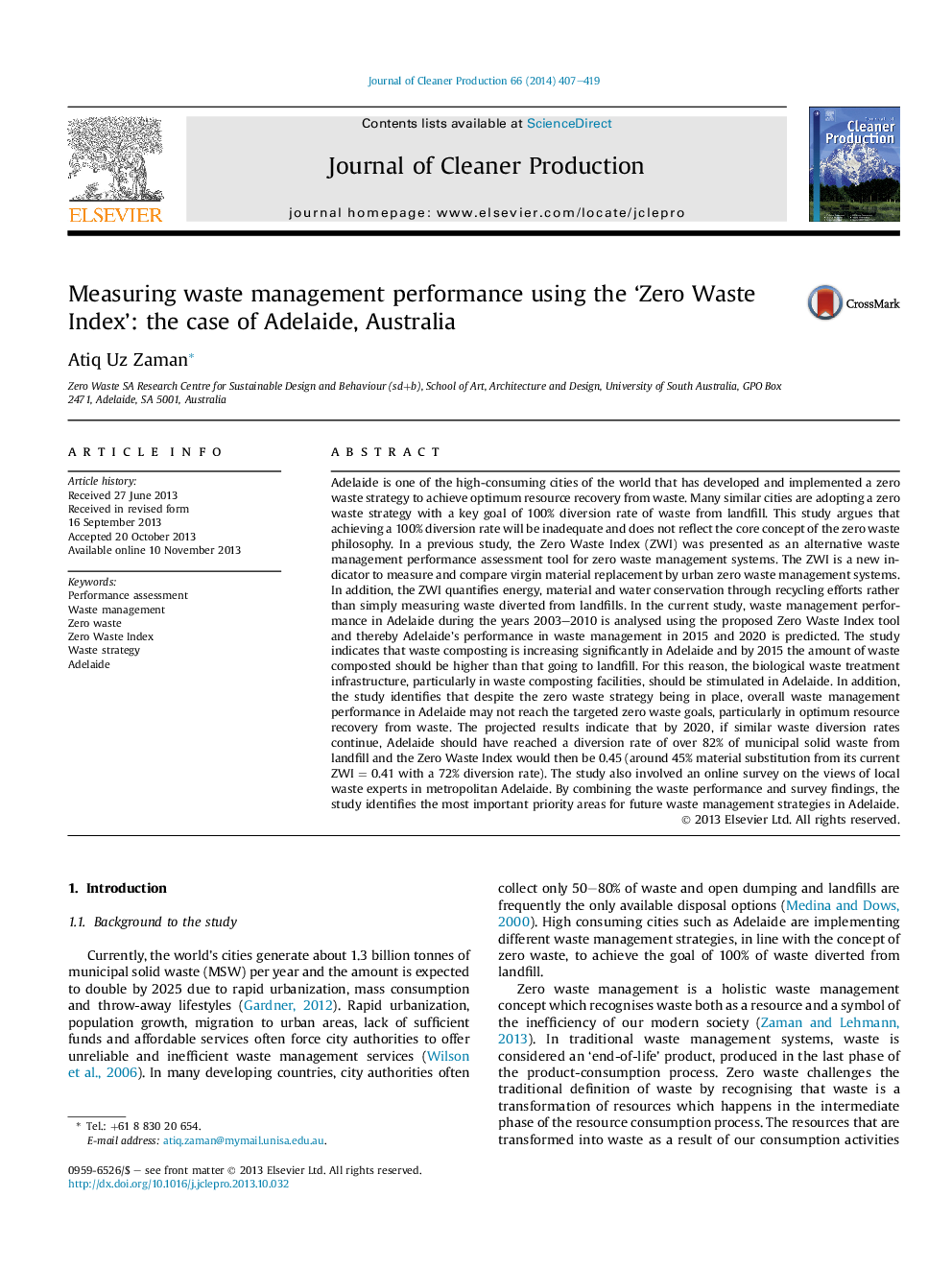| کد مقاله | کد نشریه | سال انتشار | مقاله انگلیسی | نسخه تمام متن |
|---|---|---|---|---|
| 1745008 | 1522180 | 2014 | 13 صفحه PDF | دانلود رایگان |

• Achieving ‘zero waste’ is challenging and needs multidisciplinary action.
• Zero Waste Index can measures the WM performance of the city.
• Achieving a 100% diversion rate will not be adequate for zero waste.
• Waste management performance in Adelaide may not reach the targeted ZW goals.
• Study identified the most important priority areas for future WM strategies.
Adelaide is one of the high-consuming cities of the world that has developed and implemented a zero waste strategy to achieve optimum resource recovery from waste. Many similar cities are adopting a zero waste strategy with a key goal of 100% diversion rate of waste from landfill. This study argues that achieving a 100% diversion rate will be inadequate and does not reflect the core concept of the zero waste philosophy. In a previous study, the Zero Waste Index (ZWI) was presented as an alternative waste management performance assessment tool for zero waste management systems. The ZWI is a new indicator to measure and compare virgin material replacement by urban zero waste management systems. In addition, the ZWI quantifies energy, material and water conservation through recycling efforts rather than simply measuring waste diverted from landfills. In the current study, waste management performance in Adelaide during the years 2003–2010 is analysed using the proposed Zero Waste Index tool and thereby Adelaide's performance in waste management in 2015 and 2020 is predicted. The study indicates that waste composting is increasing significantly in Adelaide and by 2015 the amount of waste composted should be higher than that going to landfill. For this reason, the biological waste treatment infrastructure, particularly in waste composting facilities, should be stimulated in Adelaide. In addition, the study identifies that despite the zero waste strategy being in place, overall waste management performance in Adelaide may not reach the targeted zero waste goals, particularly in optimum resource recovery from waste. The projected results indicate that by 2020, if similar waste diversion rates continue, Adelaide should have reached a diversion rate of over 82% of municipal solid waste from landfill and the Zero Waste Index would then be 0.45 (around 45% material substitution from its current ZWI = 0.41 with a 72% diversion rate). The study also involved an online survey on the views of local waste experts in metropolitan Adelaide. By combining the waste performance and survey findings, the study identifies the most important priority areas for future waste management strategies in Adelaide.
Journal: Journal of Cleaner Production - Volume 66, 1 March 2014, Pages 407–419